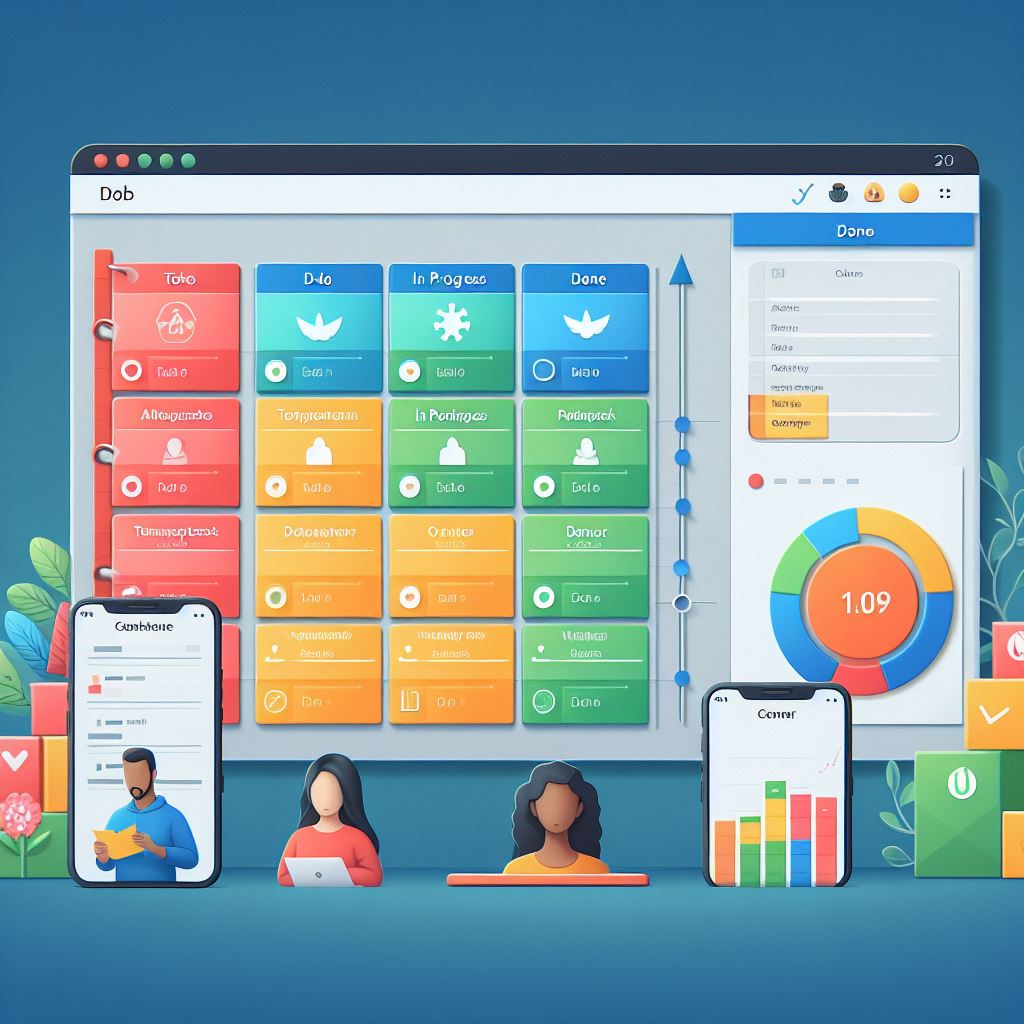Agile Project management is an iterative approach to managing projects that focuses on delivering value to customers quickly and responding to change effectively. It is based on the principles of the Agile Manifesto, which emphasizes individuals and interactions over processes and tools, working software over comprehensive documentation, customer collaboration over contract negotiation, and responding to change over following a plan.

Iterative and Incremental Approach: Agile project management breaks down projects into small, manageable iterations or increments, with each iteration delivering a potentially shippable product increment. This approach allows teams to deliver value to customers quickly and adapt to changing requirements and priorities.
Customer Collaboration: Agile project management emphasizes collaboration with customers and stakeholders throughout the project. Customers are involved in the project from the beginning, providing feedback and guidance to ensure that the final product meets their needs and expectations.
Flexible and Adaptable: Agile project management is flexible and adaptable, allowing teams to respond to change quickly. Teams can adjust their plans and priorities based on feedback and new information, ensuring that they are always working on the most valuable features and requirements.
Empowered Teams: Agile project management empowers teams to make decisions and take ownership of their work. Teams are self-organizing and cross-functional, with members from different disciplines working together to deliver value.
Continuous Improvement: Agile project management emphasizes continuous improvement, with teams regularly reflecting on their processes and performance and making adjustments to improve. This iterative approach helps teams learn from their experiences and become more effective over time.
Transparency and Visibility: Agile Project management promotes transparency and visibility into the project's progress and status. Teams use tools such as Kanban Boards or burndown charts to track their work and make progress visible to stakeholders.
Key Practices:
Scrum: Scrum is a popular Agile framework for project management that emphasizes fixed-length iterations called sprints, daily stand-up meetings, and regular feedback loops.
Kanban: Kanban is a visual management method that helps teams balance work-in-progress (WIP) and optimize workflow. Kanban uses a Kanban board to visualize work, with columns representing different stages of the workflow and cards representing tasks.
Lean: Lean principles, such as minimizing waste and maximizing value, are often incorporated into Agile project management to streamline processes and improve efficiency.
Agile project management is a flexible and adaptive approach to managing projects that focuses on delivering value to customers quickly, collaborating with stakeholders, and continuously improving processes. It is well-suited for projects where requirements are likely to change or evolve and where delivering value early and often is important.